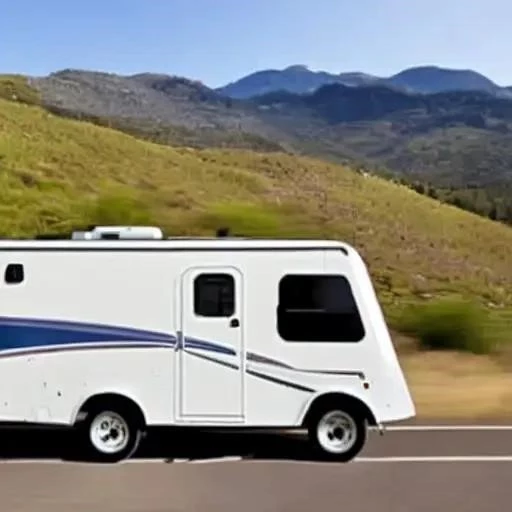Imagine the open road stretching before you, a boundless horizon promising adventure and discovery. For many, this vision isn’t complete without the added utility and excitement that comes from bringing along more than just passengers – perhaps a boat for serene lake days, a camper for rustic getaways, or vital equipment for a weekend project. The versatility offered by a vehicle capable of towing transforms mere transportation into a powerful enabler of dreams, expanding horizons far beyond the daily commute.
But before embarking on such journeys, a crucial question often arises for countless vehicle owners: “What can I truly tow with my car?” This isn’t merely a logistical query; it’s an invitation to unlock new possibilities, transforming your everyday ride into a versatile workhorse or a gateway to exhilarating recreational pursuits. Understanding your vehicle’s inherent capabilities, coupled with essential knowledge and proper preparation, is the fundamental key to safely and confidently hauling your next great adventure.
| Key Towing Consideration | Description & Importance | Actionable Tip |
|---|---|---|
| Towing Capacity | The maximum weight your vehicle can safely pull, determined by the manufacturer. Exceeding this is incredibly dangerous and illegal. | Check your vehicle’s owner’s manual or a sticker on the driver’s side door jamb for its exact towing capacity. |
| Tongue Weight | The downward force exerted by the trailer’s coupler onto the hitch ball. Ideally, it should be 10-15% of the total trailer weight for stability. | Measure your loaded trailer’s tongue weight using a specialized scale. Adjust load distribution if necessary. |
| Gross Vehicle Weight Rating (GVWR) & Gross Combined Weight Rating (GCWR) | GVWR is the max operating weight of your loaded vehicle. GCWR is the max combined weight of your loaded vehicle and loaded trailer. | Ensure the combined weight of your vehicle, passengers, cargo, and trailer never exceeds these ratings. |
| Braking System | Adequate braking power is paramount. Many heavier trailers require their own independent braking systems for safety. | Verify if your trailer needs its own brakes and ensure your vehicle has a compatible brake controller installed. |
| Tires & Mirrors | Your vehicle’s tires must be properly inflated and rated for the load. Extended mirrors are often legally required and crucial for visibility. | Inspect tire pressure and condition before every trip. Invest in proper towing mirrors for expanded rearward vision. |
| Legal & Licensing Requirements | Towing regulations vary significantly by state and country, covering everything from trailer size to required safety chains and lights. | Research local and destination towing laws before departure. Ensure all lights and safety chains are correctly attached and functional. |
Delving deeper, understanding your vehicle’s precise capabilities is paramount. Every car, truck, or SUV possesses a towing capacity, a maximum weight it can safely pull, meticulously determined by its manufacturer. This crucial figure accounts for engine power, transmission robustness, chassis strength, and braking performance. Overlooking this specification, often found in the owner’s manual or on a sticker inside the driver’s door jamb, can lead to serious mechanical failure, loss of control, and potentially catastrophic accidents. Furthermore, consider the tongue weight – the downward force the trailer exerts on your vehicle’s hitch. Properly distributing this weight, typically aiming for 10-15% of the total loaded trailer weight, is remarkably effective in preventing dangerous sway and maintaining optimal steering control.
The world of towable accessories is incredibly diverse, offering solutions for virtually every need and desire. From compact utility trailers hauling garden waste or moving boxes, to sturdy flatbeds transporting ATVs or small vehicles, the options are extensive. Recreational towing, however, truly captivates the imagination. Imagine effortlessly pulling a sleek fishing boat towards a shimmering lake, or a cozy travel trailer to a picturesque mountain campsite. Modern RVs, often equipped with impressive amenities, allow families to create mobile homes, fostering unforgettable memories. Each type of trailer, possessing its own unique weight and design characteristics, demands a thoughtful assessment of your vehicle’s capacity and the appropriate hitching equipment, ensuring a seamless and secure connection.
Beyond the numbers and equipment, safety remains the unwavering cornerstone of any successful towing endeavor. Before hitting the road, a comprehensive pre-trip inspection is non-negotiable. This includes verifying tire pressures on both the tow vehicle and trailer, checking all lights for functionality, ensuring safety chains are correctly crossed, and testing the trailer’s braking system, if equipped. Moreover, adapting your driving style is crucially important; sudden braking or aggressive turns can destabilize a towed load. By integrating insights from experienced haulers, drivers quickly learn the art of anticipating traffic, maintaining greater following distances, and navigating winding roads with heightened caution. Being prepared for unexpected scenarios, such as a tire blowout or a sudden shift in cargo, can make all the difference.
Embracing the potential of your vehicle to tow opens up a universe of possibilities, transforming weekend chores into manageable tasks and distant dreams into tangible realities. With careful planning, a thorough understanding of your vehicle’s limits, and an unwavering commitment to safety, you’re not just hitching a trailer; you’re connecting to a future filled with memorable experiences and unparalleled freedom. So, take the time to learn, prepare diligently, and then confidently embark on your next great adventure, knowing your vehicle is more than ready to pull its weight.

